1589 Born: Ivan Gundulić, Croatian poet and playwright (d. 1638)
Ivan Franov Gundulić also Gianfrancesco Gondola (8 January 1589 – 8 December 1638), better known today as Ivan Gundulić, was the most prominent Baroque poet from the Republic of Ragusa. His work embodies central characteristics of Roman Catholic Counter-Reformation: religious fervor, insistence on "vanity of this world" and zeal in opposition to "infidels". Gundulić's major works—the epic poem Osman, the pastoral play Dubravka, and the religious poem Tears of the Prodigal Son (based on the Parable of the Prodigal Son) are examples of Baroque stylistic richness and, frequently, rhetorical excess. In Croatia, Gundulić is considered to be the most notable Croatian Baroqoe poet, while in Serbia he is seen as an integral part of Serbian literature
1642 – Galileo Galilei, Italian physicist, mathematician, astronomer, and philosopher (b. 1564)
Galileo di Vincenzo Bonaulti de Galilei (15 February 1564 – 8 January 1642) was an Italian astronomer, physicist and engineer, sometimes described as a polymath, from Pisa. Galileo has been called the "father of observational astronomy", the "father of modern physics", the "father of the scientific method", and the "father of modern science".
Galileo studied speed and velocity, gravity and free fall, the principle of relativity, inertia, projectile motion and also worked in applied science and technology, describing the properties of pendulums and "hydrostatic balances", inventing the thermoscope and various military compasses, and using the telescope for scientific observations of celestial objects. His contributions to observational astronomy include the telescopic confirmation of the phases of Venus, the observation of the four largest satellites of Jupiter, the observation of Saturn's rings, and the analysis of sunspots.
Galileo's championing of heliocentrism and Copernicanism was controversial during his lifetime, when most subscribed to geocentric models such as the Tychonic system. He met with opposition from astronomers, who doubted heliocentrism because of the absence of an observed stellar parallax. The matter was investigated by the Roman Inquisition in 1615, which concluded that heliocentrism was "foolish and absurd in philosophy, and formally heretical since it explicitly contradicts in many places the sense of Holy Scripture".
Galileo later defended his views in Dialogue Concerning the Two Chief World Systems (1632), which appeared to attack Pope Urban VIII and thus alienated him and the Jesuits, who had both supported Galileo up until this point. He was tried by the Inquisition, found "vehemently suspect of heresy", and forced to recant. He spent the rest of his life under house arrest. While under house arrest, he wrote Two New Sciences, in which he summarized work he had done some forty years earlier on the two sciences now called kinematics and strength of materials.
Stamps from Hungary, Italy and Luxembourg depicting Galileo
1806 – Cape Colony becomes a British colony.
The Cape of Good Hope, also known as the Cape Colony (Dutch: Kaapkolonie), was a British colony in present-day South Africa, named after the Cape of Good Hope. The British colony was preceded by an earlier Dutch colony of the same name, the Kaap de Goede Hoop, established in 1652 by the Dutch East India Company. The Cape was under Dutch rule from 1652 to 1795 and again from 1803 to 1806. The Dutch lost the colony to Great Britain following the 1795 Battle of Muizenberg, but had it returned following the 1802 Peace of Amiens. It was re-occupied by the UK following the Battle of Blaauwberg in 1806, and British possession affirmed with the Anglo-Dutch Treaty of 1814.
The Cape of Good Hope then remained in the British Empire, becoming self-governing in 1872, and uniting with three other colonies to form the Union of South Africa in 1910. It then was renamed the Province of the Cape of Good Hope. South Africa became a sovereign state in 1931 by the Statute of Westminster. In 1961 it became the Republic of South Africa and obtained its own monetary unit called the Rand. Following the 1994 creation of the present-day South African provinces, the Cape Province was partitioned into the Eastern Cape, Northern Cape, and Western Cape, with smaller parts in North West province.
The Cape of Good Hope was coextensive with the later Cape Province, stretching from the Atlantic coast inland and eastward along the southern coast, constituting about half of modern South Africa: the final eastern boundary, after several wars against the Xhosa, stood at the Fish River. In the north, the Orange River, also known as the Gariep River, served as the boundary for some time, although some land between the river and the southern boundary of Botswana was later added to it. From 1878, the colony also included the enclave of Walvis Bay and the Penguin Islands, both in what is now Namibia.
Early stamps from the Cape of Good Hope
1877 – Crazy Horse and his warriors fight their last battle against the United States Cavalry at Wolf Mountain, Montana Territory.
The Battle of Wolf Mountain, also known the Battle of the Wolf Mountains, Miles's Battle on the Tongue River, the Battle of the Butte and called the Battle of Belly Butte by the Northern Cheyenne, occurred January 8, 1877, in southern Montana Territory between soldiers of the United States Army against Lakota Sioux and Northern Cheyenne warriors during the Great Sioux War of 1876. It was fought about four miles southwest of modern-day Birney, along the Tongue River. In 2001, the Wolf Mountains Battlefield was listed on the National Register of Historic Places. It was raised to the status of National Historic Landmark in 2008.
In September 1877, four months after surrendering to U.S. troops under General George Crook, Crazy Horse was fatally wounded by a bayonet-wielding military guard while allegedly resisting imprisonment at Camp Robinson in present-day Nebraska. He ranks among the most notable and iconic of Native American warriors and was honored by the U.S. Postal Service in 1982 with a 13¢ Great Americans series postage stamp.
You can see that stamp below
1894 Born: Maximilian Kolbe, Polish martyr and saint (d. 1941)
Maximilian Kolbe (8 January 1894 – 14 August 1941) was a Polish Conventual Franciscan friar who volunteered to die in place of a stranger in the German death camp of Auschwitz, located in German-occupied Poland during World War II. He had been active in promoting the veneration of the Immaculate Virgin Mary, founding and supervising the monastery of Niepokalanów near Warsaw, operating an amateur-radio station (SP3RN), and founding or running several other organizations and publications.
On 10 October 1982 Pope John Paul II canonized Father Kolbe and declared him a martyr of charity. The Catholic Church venerates him as the patron saint of amateur-radio operators, of drug addicts, of political prisoners, of families, of journalists, of prisoners, and of the pro-life movement. John Paul II declared him "The Patron Saint of Our Difficult Century". His feast day is 14 August, the day of his death.
Due to Kolbe's efforts to promote consecration and entrustment to Mary, he is known as the Apostle of Consecration to Mary.
Polish and German stamps depicting Kolbe
1996 Died: François Mitterrand, French sergeant and politician, 21st President of France (b. 1916)
François Maurice Adrien Marie Mitterrand (26 October 1916 – 8 January 1996) was a French statesman who served as President of France from 1981 to 1995, the longest time in office in the history of France. As First Secretary of the Socialist Party, he was the first left-wing politician to assume the presidency under the Fifth Republic.
Reflecting family influences, Mitterrand started political life on the Catholic nationalist right. He served under the Vichy Regime during its earlier years. Subsequently he joined the Resistance, moved to the left, and held ministerial office several times under the Fourth Republic. He opposed de Gaulle's establishment of the Fifth Republic. Although at times a politically isolated figure, Mitterrand outmanoeuvered rivals to become the left's standard bearer at every presidential election from 1965–88; with the exception of 1969. Mitterrand was elected President at the 1981 presidential election. He was re-elected in 1988 and remained in office until 1995.
Mitterrand invited the Communist Party into his first government, which was a controversial decision at the time. In the event, the Communists were boxed in as junior partners and, rather than taking advantage, saw their support erode. They left the cabinet in 1984. Early in his first term, Mitterrand followed a radical left-wing economic agenda, including nationalisation of key firms, but after two years, with the economy in crisis, he reversed course. He pushed a socially liberal agenda with reforms such as the abolition of the death penalty, the 39-hour work week, and the end of a government monopoly in radio and television broadcasting. His foreign and defense policies built on those of his Gaullist predecessors.
His partnership with German Chancellor Helmut Kohl advanced European integration via the Maastricht Treaty, but he reluctantly accepted German reunification. During his time in office, he was a strong promoter of culture and implemented a range of costly "Grands Projets". He is the only French President to ever have named a female Prime Minister, Édith Cresson, in 1991. He was twice forced by the loss of a parliamentary majority into "cohabitation governments" with conservative cabinets led, respectively, by Jacques Chirac (1986–1988), and Édouard Balladur (1993–1995). Less than eight months after leaving office, Mitterrand died from the prostate cancer he had successfully concealed for most of his presidency.
Beyond making the French left electable, Mitterrand presided over the rise of the Socialist Party to dominance of the left, and the decline of the once-mighty Communist Party (as a share of the popular vote in the first presidential round, the Communists shrank from a peak of 21.27% in 1969 to 8.66% in 1995, at the end of Mitterrand's second term).
French First Day Cover depicting François Mitterrand

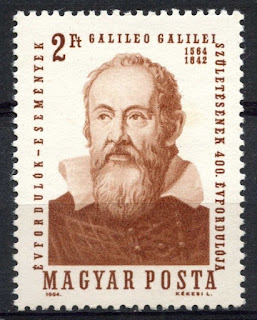


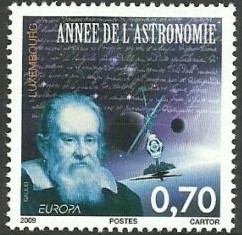
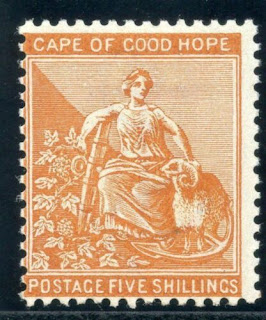



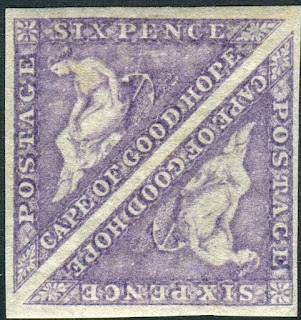

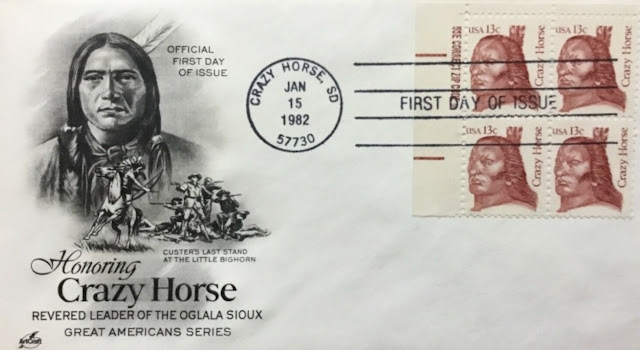
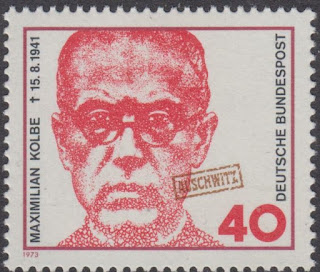

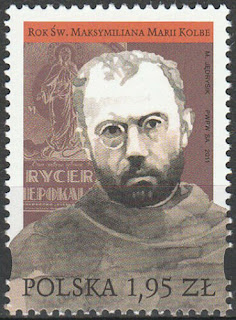
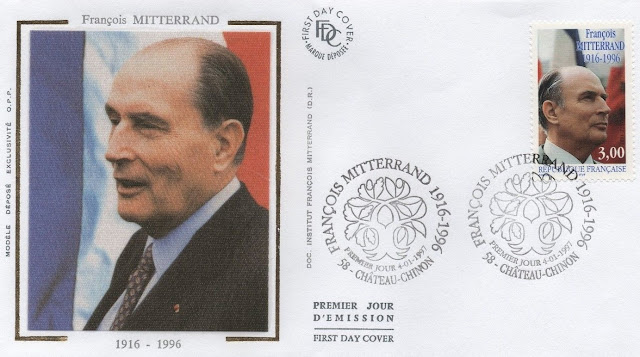
No comments:
Post a Comment